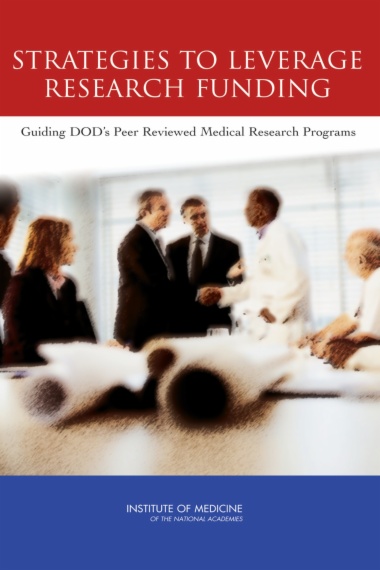Since 1992 the Department of Defense (DOD), through the U.S. Army Medical
Research and Material Command, has received congressionally earmarked appropriations
for programs of biomedical research on prostate, breast, and ovarian cancer;
neurofibromatosis; tuberous sclerosis; and other health problems. Appropriations for
these Congressionally Directed Medical Research Programs are used to support peer
reviewed extramural research project, training, and infrastructure grants.
Congress has become concerned about funding increases for these programs
given current demands on the military budget. At the request of Congress, the
Institute of Medicine (IOM) examined possibilities of augmenting program funding
from alternative sources. The resulting IOM book, Strategies to Leverage Research
Funding: Guiding DOD's Peer Reviewed Medical Research Programs, focuses on nonfederal
and private sector contributions that could extend the appropriated funds without
biasing the peer review project selection process.
- Cover
- Front Matter
- Executive Summary
- 1 Introduction
- 2 Sources of Funding for Biomedical Research
- 3 Examples of Leveraging Nonfederal Dollars for Research
- 4 Assessment of Alternative Sources and Mechanisms of Nonfederal Support
- 5 Findings and Recommendations
- Appendix A: Selected Federal Programs with Nonfederal Funding Participation
- Appendix B: Biographical Sketches of Committee Members
- Appendix C: Workshop Agenda
- Appendix D: "Leveraging Public Investments with Private Sector Partnerships: A Review of the Economics Literature"

